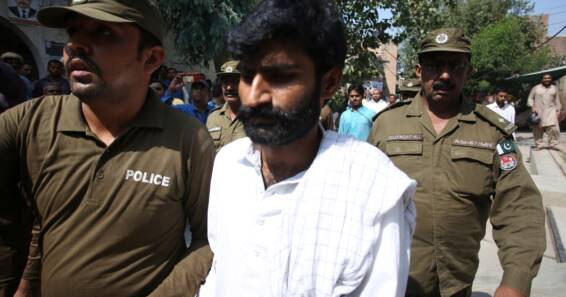Parliamentary Secretary for Law Maleeka Bokhari on Saturday said that the state was “reviewing options” in the light of laws and Supreme Court judgments in the murder case of social media star Qandeel Baloch, whose brother was acquitted by the Lahore High Court (LHC) earlier this week.
[adinserter block= “3”]
Before her death in 2016, Baloch, 26, became known for her posts that were viewed by many as suggestive and immoral. Her Facebook posts spoke of trying to change “the typical orthodox mindset” of people in Pakistan. She faced frequent abuse and death threats but continued to post pictures and videos seen as provocative.

Her brother Muhammad Waseem was arrested and later sentenced to life in prison by a trial court for strangling her. He also brazenly told the press he had no remorse for the slaying because her behavior was “intolerable”.
Waseem appealed against his 2019 murder conviction and life sentence. “He has been fully acquitted” by a court in the eastern city of Multan, his lawyer Sardar Mehboob told the AFP news agency, without giving further details.

His mother had also submitted a statement in the court that she had pardoned him, he added. It was not clear whether the court considered the mother’s statement in its decision. The main amendment in laws dealing with “honor killings” in Pakistan was that no one could be set free based solely on a pardon by a family member.
Soon after the news went viral, many took to social media and expressed shock over the court’s ruling and condemned Waseem’s release.
[adinserter block= “10”]
Reviewing legal options in the case
“The state is undertaking a review of legal options in the Qandeel Baloch case in light of law and SC judgments,” said Maleeka Bokhari in a tweet today.

Terming “honor killings” a black mark on society, she said the law had been amended to “ensure murderer[s] of women — whether a celebrity or ordinary woman — does not walk free”.
Meanwhile, the National Commission on the Status of Women (NCSW) has also announced plans to appeal the verdict before the Supreme Court on Wednesday.
Baloch had posted Facebook posts in which she spoke of trying to change “the typical orthodox mindset” of people in Pakistan. She faced frequent abuse and death threats but continued to post pictures and videos seen as provocative. Her killing spurred the government to tighten laws dealing with men who would kill a close relative in the name of family honor.
[adinserter block= “4”]
Hundreds of women are killed each year in Pakistan by family members over perceived offenses to honor, including elopement, fraternization with men outside marriage, or other infractions against claimed Muslim values on female modesty.
What do you think of this story? Let us know in the comments section below.










